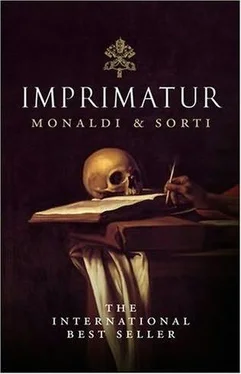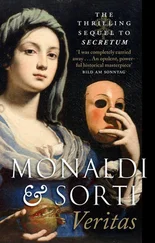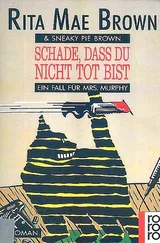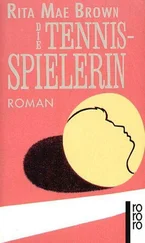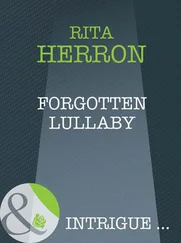Rita Monaldi - Imprimatur
Здесь есть возможность читать онлайн «Rita Monaldi - Imprimatur» весь текст электронной книги совершенно бесплатно (целиком полную версию без сокращений). В некоторых случаях можно слушать аудио, скачать через торрент в формате fb2 и присутствует краткое содержание. Жанр: Исторический детектив, на английском языке. Описание произведения, (предисловие) а так же отзывы посетителей доступны на портале библиотеки ЛибКат.
- Название:Imprimatur
- Автор:
- Жанр:
- Год:неизвестен
- ISBN:нет данных
- Рейтинг книги:5 / 5. Голосов: 1
-
Избранное:Добавить в избранное
- Отзывы:
-
Ваша оценка:
- 100
- 1
- 2
- 3
- 4
- 5
Imprimatur: краткое содержание, описание и аннотация
Предлагаем к чтению аннотацию, описание, краткое содержание или предисловие (зависит от того, что написал сам автор книги «Imprimatur»). Если вы не нашли необходимую информацию о книге — напишите в комментариях, мы постараемся отыскать её.
Imprimatur — читать онлайн бесплатно полную книгу (весь текст) целиком
Ниже представлен текст книги, разбитый по страницам. Система сохранения места последней прочитанной страницы, позволяет с удобством читать онлайн бесплатно книгу «Imprimatur», без необходимости каждый раз заново искать на чём Вы остановились. Поставьте закладку, и сможете в любой момент перейти на страницу, на которой закончили чтение.
Интервал:
Закладка:
Memorials
Day the First
11th September, 1683
The men of the Bargello arrived in the late afternoon, just as I was about to light the torch that illuminated our sign. In their fists, they grasped planks and hammers; and seals and chains and great nails. As they advanced along the Via del Orso, they called out and gestured imperiously to the passers-by and knots of curious bystanders that they must clear the street. Truly, they were most wrathful. When they came level with me, they began to wave their arms about: "All inside, all inside, we must shut up the house," cried the man who gave the orders.
Barely had I time to descend from the stool onto which I had climbed than hard hands shoved me roughly into the entrance, while some began to bar the door with threatening mien. I was stunned. I came abruptly to my senses, jostled by the gathering which, drawn by the officers' cries, had piled up in the doorway as though a bolt of lightning had fallen from an empty sky. These were the lodgers at our inn, known as the Locanda del Donzello.
They were but nine, and all were present: waiting for supper to be served, as was their wont every evening, they wandered about the ground floor among the day-beds in the entrance hall and the tables of the two adjoining dining chambers, each feigning some business; but, in reality, all turning around the young French guest, the musician Robert Devize who, with great bravura, was practising the guitar.
"Let me out! Ah, how dare you? Remove your hands from me! I cannot remain here! I am perfectly healthy, understood? Perfectly healthy! Let me by, I tell you!"
He who thus cried out (and whom I could barely descry through the thicket of lances with which the men-at-arms held him at bay) was our guest Padre Robleda, the Spanish Jesuit, who, panic-stricken, began to groan and to pant, his neck all red and swollen. So piercing were his screams that they minded me of the squeals of swine, hanging head downwards before slaughter.
The noise resounded down the street and, it seemed to me, as far off as the little square, which had emptied in a trice. On the far side of the street, I caught sight of the fishmonger who, with two servants from the nearby Locanda dell'Orso, was observing the scene.
"They are shutting us in," I cried to them, trying to capture their attention, but the trio remained unmoved.
A vinegar-seller, a snow vendor and a group of little boys whose cries had, only moments earlier, enlivened the street, now hid fearfully round the corner.
Meanwhile, my master, Signor Pellegrino de Grandis, had placed a small bench on the threshold of the inn. One of the officers of the Bargello laid thereon the register of the lodgers at our inn, which he had just received, and began the roll-call.
"Padre Juan de Robleda, from Granada."
Since I had never been present at a closure for quarantine, and no one had ever spoken to me of such a thing, I thought at first that they meant to imprison us.
"A dreadful, dreadful business," whispered Brenozzi, the Venetian.
"Come out, Padre Robleda!" called the officer, growing impatient.
The Jesuit who, in his vain struggle against the men-at-arms, had fallen senseless to the ground, now rose to his feet and, once he had made sure that every escape was barred by lances, responded to the call with a sign of his hairy hand. He was at once pushed towards me. Padre Robleda had arrived from Spain a few days earlier, and ever since morning, because of the day's events, he had sorely tried our ears with his fearful screaming.
"Abbot Melani, from Pistoia!" called the official, reading from the register of guests.
Darting up from the shadows came the fashionable French lace ornamenting the wrist of our latest guest, who had arrived only at sunrise. He raised his hand diligently when his name was called, and his little triangular eyes shone like stilettos piercing the shade. The Jesuit did not move a muscle to make room when Melani, with tranquil gait and in silence, joined us. It was the abbot's cries that had raised the alarum that morning.
We had all heard them, they came from upstairs. Pellegrino, the host, my master, was the first to stir his long legs and run swiftly. But hardly had he reached the large chamber on the first floor, giving onto the Via dell'Orso, than he stopped. There, two guests had taken up lodgings: Signor di Mourai, an aged French gentleman, and his companion Pompeo Dulcibeni, who hailed from the Marches. Mourai, in an armchair, with his feet soaking in the basin for his customary bath, sprawled sideways, his arms hanging down, while the abbot held him upright and strove to revive him, shaking him by the collar. Mourai's attention seemed fixed upon his helper's shoulders and he appeared to be scrutinising Pellegrino with great astonished eyes, while an indistinct gurgle issued from his throat. It was then that Pellegrino realised that the abbot was not calling for help but, with great uproar and agitation, interrogating the old man. He was speaking to him in French, which my master could not understand; but imagined that he was enquiring of him what had happened. To Pellegrino (as he was later to recount to us all) it did, however, seem that Abbot Melani was shaking Mourai with excessive vigour in his attempts to revive him, and so he rushed to release the old man from that all-too- powerful grasp. It was at that instant that poor Signor di Mourai, with an immense effort, uttered his last words: "Alas, so it really is true," he gasped in Italian. Then he left off from panting. His eyes remained fixed upon his host and a greenish dribble ran from his mouth to his breast. And so he died.
"The old man, es el viejo," gasped Padre Robleda mixing languages in a terrorised whisper, no sooner than we had heard two men-at-arms murmur the words "pestilence" and "shutting up".
"Cristofano, physician and chirurgeon, from Siena!" called the officer.
With slow and measured gestures, our Tuscan guest stepped forward, holding the little leather bag containing all his instruments from which he was never parted.
"It is I," he responded in a low voice, after opening his bag, shuffling through a mass of papers and, with frigid dignity, clearing his voice. Cristofano was rotund and short of stature, careful of his appearance and with a jovial expression that set one at ease. That evening, his face was pale and dripping with perspiration, nor did he take the trouble to wipe it; his pupils focussed on something invisible in front of him and, before he moved, he made a quick gesture, smoothing his pointed beard. His every movement betrayed the extreme apprehensiveness behind his would-be phlegmatic calm.
"I wish to make it clear that, following a preliminary but careful examination of Signor di Mourai's body, I am by no means certain that this is a case of infection," began Cristofano. "The medical examiner of the Magistrate for Health, who asserts this with such confidence, spent very little time with the corpse. I have here," and he showed the papers, "my written observations on the case. I believe they could help you to reconsider the situation a little longer and delay any over-hasty decision on your part."
The Bargello's men, however, had neither the power nor the desire to enter into such points of detail.
"The Magistrate has ordered the immediate closure of this inn," said the officer who seemed to be in charge, adding that, for the time being, a proper quarantine had not been declared: the closure was for twenty days only, and without evacuation of the street; so long, of course, as there were no further deaths or suspected cases of distemper.
"Seeing as I too am to be locked up, and in order that I may the better arrive at my diagnosis," insisted Signor Cristofano with some irritation, "may I not at least know something more about the last meals on which the late Signor di Mourai supped, he being accustomed always to eat alone and in his chamber? It may have been no more than a simple congestion."
Читать дальшеИнтервал:
Закладка:
Похожие книги на «Imprimatur»
Представляем Вашему вниманию похожие книги на «Imprimatur» списком для выбора. Мы отобрали схожую по названию и смыслу литературу в надежде предоставить читателям больше вариантов отыскать новые, интересные, ещё непрочитанные произведения.
Обсуждение, отзывы о книге «Imprimatur» и просто собственные мнения читателей. Оставьте ваши комментарии, напишите, что Вы думаете о произведении, его смысле или главных героях. Укажите что конкретно понравилось, а что нет, и почему Вы так считаете.
